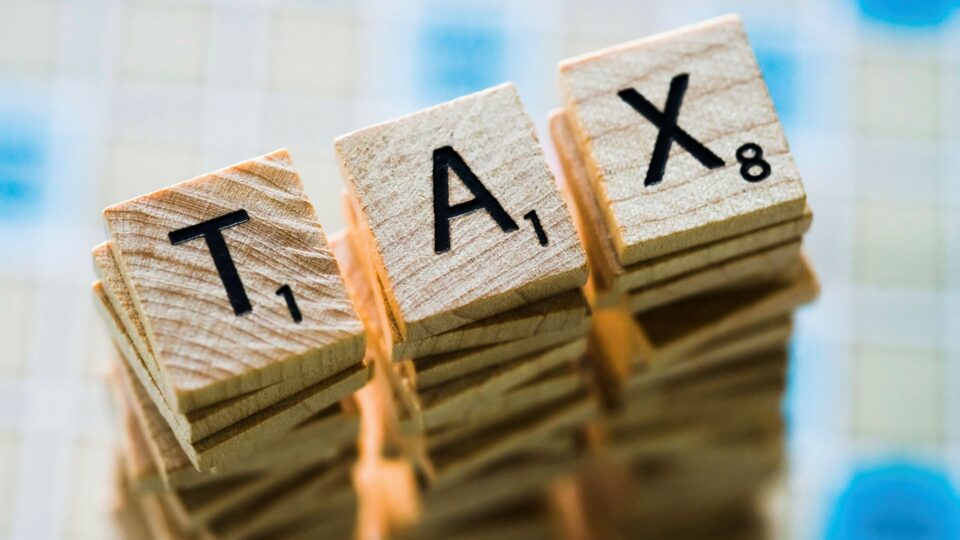There have been a huge number of changes to German tax law recently, which could see some taxpayers netting an even bigger rebate this year. Here are the key things you need to know about filing your tax return for 2021.
Filling in a tax return is never a fun experience, but statistics from the German government show that it can definitely be worthwhile. In 2017, the average worker received a €1,051 rebate after submitting their tax return, according to the Federal Office of Statistics. Not only that, but 90 percent of workers got at least some money back from the tax office.
If you’re planning on filling in your tax return yourself this year without the help of a tax advisor – and you have to submit one because you’re a freelancer or self-employed – the deadline for doing so is July 31st, 2022.
Remember that if you’re filling in a tax return voluntarily you can generally do so up to four years after the year in question. But keep in mind that if you have been part of the Kurzarbeit reduced working hours scheme, then you will have to submit a tax return this year (more on this below).
Here’s what you need to know about the most important tax allowances and write-offs you may be entitled to.
Increased commuter allowance
Since January 1st, 2021, the so-called commuter allowance has been increased by five cents. The commuter allowance enables workers to write off expenses for every kilometre they have to travel to work, with the amount increasing in commutes of more than 20km one-way.
For the first 20km, commuters can claim 30 cents in expenses, and from the 21st kilometre onwards, commuters can claim 35 cents per kilometre. So a person who travels 25km to work would be able to claim €7.75 in travel expenses for each working day.
The amount taxpayers can claim for commutes over 20km is set to go up again this year in light of rising fuel costs. Workers will soon be able to claim 38 cents back on each kilometre over 20 that they travel to work, but this will only apply to the 2022 tax return, so the benefits won’t be felt until 2023.
Workers on Kurzarbeit must submit a tax return
The Kurzarbeit scheme, which allowed workers to receive similar pay for reduced hours during Covid, remains an important issue for many who now have to file their tax returns. The basic rule is that anyone who received more than €410 via the scheme in 2021 is obliged to file an income tax return this year. Incidentally, this applies to all of the so-called “wage replacement benefits”, i.e. also to sickness, maternity, parental, unemployment or insolvency benefits.
“Even those who are not very good at tax returns should take the compulsory assessment very seriously,” says Bernd Werner, chairman of Lohnsteuerhilfe für Arbeitnehmer, a tax advice agency based in Gladbeck.
This is because experts believe that the tax office is likely to review all cases and could ask people who have neglected the 2021 tax return to fill one in several months later. These unlucky people will then have to pay €25 per month in late fees and will possibly face interest on their tax repayments as well.
Whether Kurzarbeit employees are due a tax rebate is subject to a number of factors. While the Kurzarbeit allowance itself isn’t subject to tax, it will be counted as income for the purposes of determining which tax rate is applicable.
Tax relief for people with disabilities
On January 1st, 2021, the government hiked up the financial allowance granted to people with disabilities. The amounts – which had remained unchanged since 1975 – were doubled. Since last year, for the first time, people with a “degree of disability” (GdB) of 20 can claim a lump sum of €384, with the allowance increasing with each additional degree of disability. People with a degree of disability of 100, for example, can claim €2,800. For a full list of the relevant amount for each disability grade and for blind people, check out these helpful charts.
If you received the lump sum in 2020 or before that, you don’t have to do anything more this year as the tax authorities will automatically apply the increases. However, numerous glitches surfaced at the beginning of last year, so do double-check whether the tax authorities have granted the correct lump sum.
If you were first diagnosed with a disability in 2021, you’ll need to apply for the financial aid at your local tax office before you can receive the money.
It’s important to note that if medical expenses have been incurred due to the disability, they can still be deducted from the tax return. In addition, lump-sum travel allowances have been introduced for people with disabilities:
- €900 is given to people with a GdB of at least 80 or with a GdB of at least 70 and severe mobility issues
- €4,500 for people with a severely disabled person’s ID card or those who are classed as blind (Bl), deaf-blind (TBl) or helpless (H)
As of 2021, the legislator also raised the flat-rate care allowances significantly. Carers who work for free can now claim:
- €600 for care level 2,
- €1,100 for care level 3
- €1,800 for care degree 4, 5 or helplessness (sign “H”).
Changes to child benefit
In an important change for families, child benefit and child allowances were increased in 2021.
The monthly child benefit for last year is:
- €219 each for the first and second child
- €225 for the third child
- €250 each for the fourth child and above.
At the same time, the child allowance has also increased. This is now €8,388 for each child if the parents are assessed together.
The tax office calculates which is more advantageous for the taxpayer – child benefit or child allowance – with the “Günstigerprüfung”.
In addition, there was a one-time Kinderbonus of €150 for each child in 2021 due to the Covid pandemic. In 2022, an additional Kinderbonus of €100 per child is to follow, but this won’t apply until 2023.



